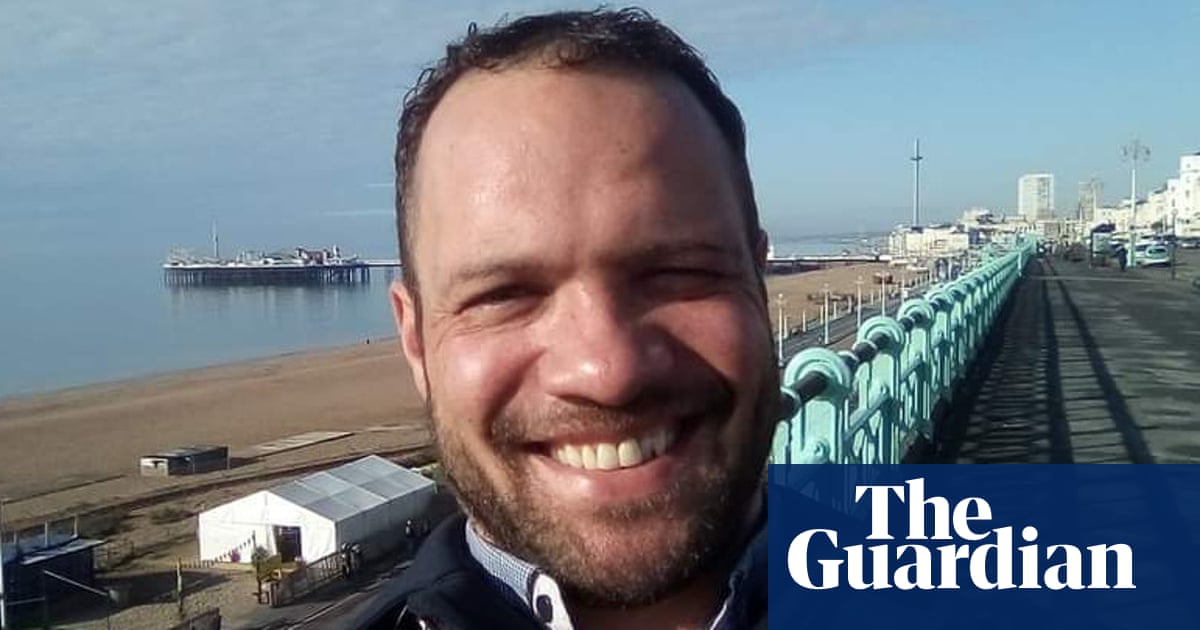On his final day, Francis Williams harbored a deep-seated fear of being incarcerated, despite having not committed a recent offense. The 43-year-old faced the grim reality of potential imprisonment after being ousted from a hostel in Bognor Regis due to a relapse in alcohol consumption.
A convoluted sentence stemming from a street robbery nearly two decades prior loomed over Williams, indicating that his homelessness and struggle with addiction could suffice to land him back behind bars. Despite having completed his sentence, the imposition of an imprisonment for public protection (IPP) order meant that any sign of risk could lead to his recall to prison.
Tragically, an inquest held at Chichester coroner’s court concluded that the IPP sentence directly contributed to Williams’s untimely demise.
When Williams was evicted from the hostel on January 27, 2023, his worst fears materialized as his probation officer informed him of an imminent emergency recall to prison. In a detailed account to her, he outlined his plans for self-harm and predicted the grim discovery that awaited the authorities.
Despite the abolition of IPP sentences in 2012 following widespread criticism of their repercussions, Williams remained ensnared in the system due to the lack of retroactive application of the changes.
His sister, Suzanne Rodrigues, lamented the lack of hope provided by the IPP system, emphasizing its detrimental impact on individuals like her brother. The system’s failure to offer a glimmer of optimism left Williams in a state of perpetual despair.
Last year saw a notable 8% surge in the number of individuals still under IPPs who faced recall to prison, underscoring the ongoing challenges and injustices within the system.
Williams, one of the initial recipients of an IPP in 2006, grappled with personal tragedies and addiction issues in his early twenties. Despite a period of apparent recovery during which he established a successful fitness coaching business, setbacks including the end of a significant relationship and the constraints imposed by his IPP led to a downward spiral in his mental well-being and a resurgence of addiction.
Rodrigues highlighted the psychological torment inflicted by the constant threat of imprisonment, even in the absence of new criminal activity. The IPP sentence cast a long shadow over Williams, fostering paranoia, isolation, and a deep-seated fear that impeded his ability to seek help for his mental health struggles and addiction.
The poignant recounting of Williams’s final interactions with his probation officer, fraught with anxiety and despair, painted a harrowing picture of the insurmountable challenges he faced. His apprehensions materialized tragically, underscoring the systemic flaws that perpetuate injustice and suffering.
Rodrigues called for systemic reforms to alleviate the plight of those still entangled in the IPP system, decrying its inherent unfairness and inhumanity. The specter of indefinite punishment without reoffending perpetuated a cycle of despair and hopelessness for individuals like Williams.
The family’s legal representative, Philip Rule KC, condemned the avoidable tragedy stemming from the government’s failure to address the plight of IPP recipients trapped in a system that offers scant prospects for redemption. Despite recent changes allowing for the automatic release of IPP offenders without reoffenses in the past five years, many individuals remain ensnared in a cycle of uncertainty and fear.
The solicitor representing the family, Olivia Coffey, underscored the urgent need for substantive reforms to prevent further tragedies like Williams’s untimely death. The Ministry of Justice’s acknowledgment of the flawed nature of IPP sentences and its efforts to enhance mental health support for at-risk individuals signify a step in the right direction.
For individuals grappling with similar challenges, crisis support services in the UK, Ireland, US, Australia, and beyond offer vital resources and assistance in times of distress.
